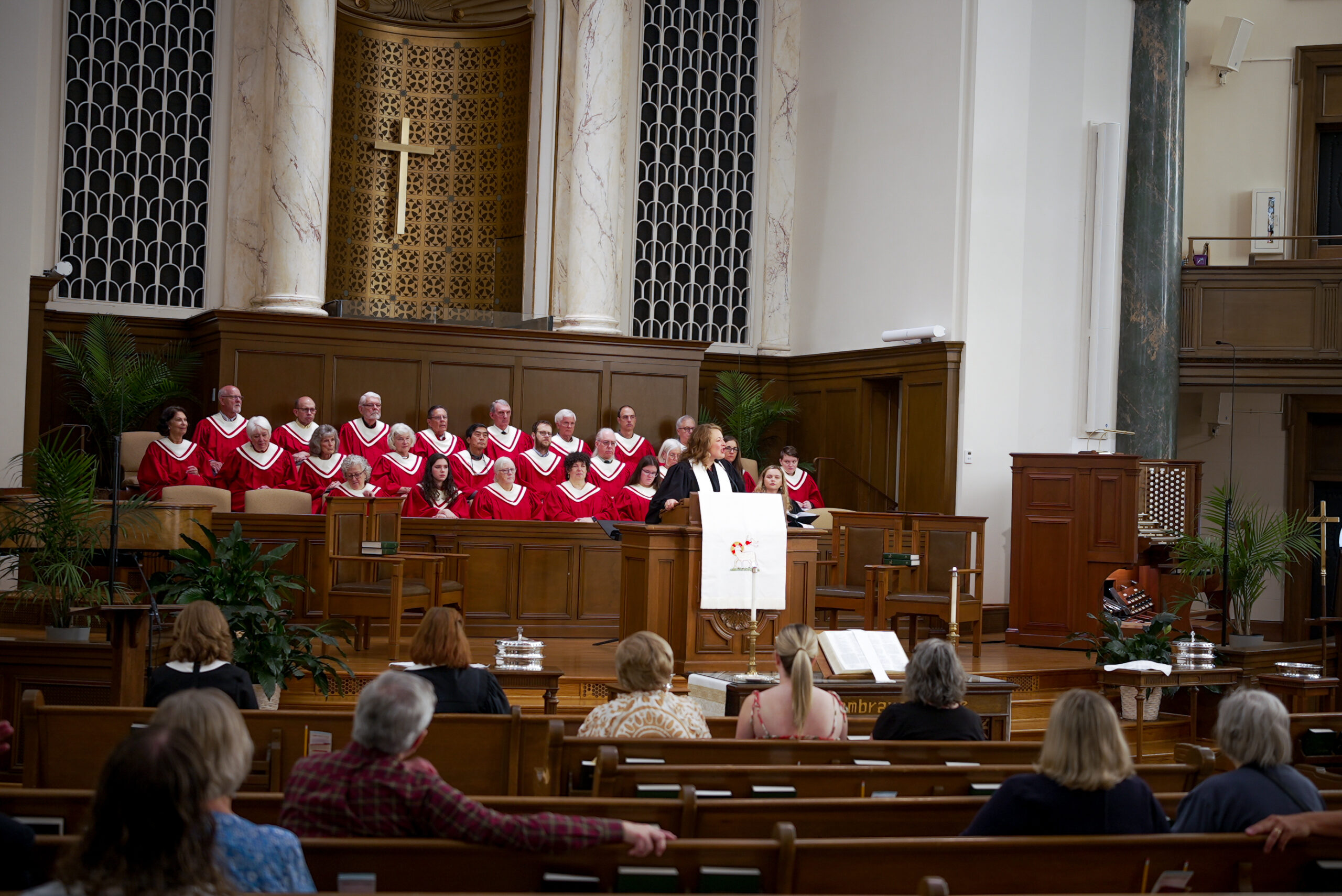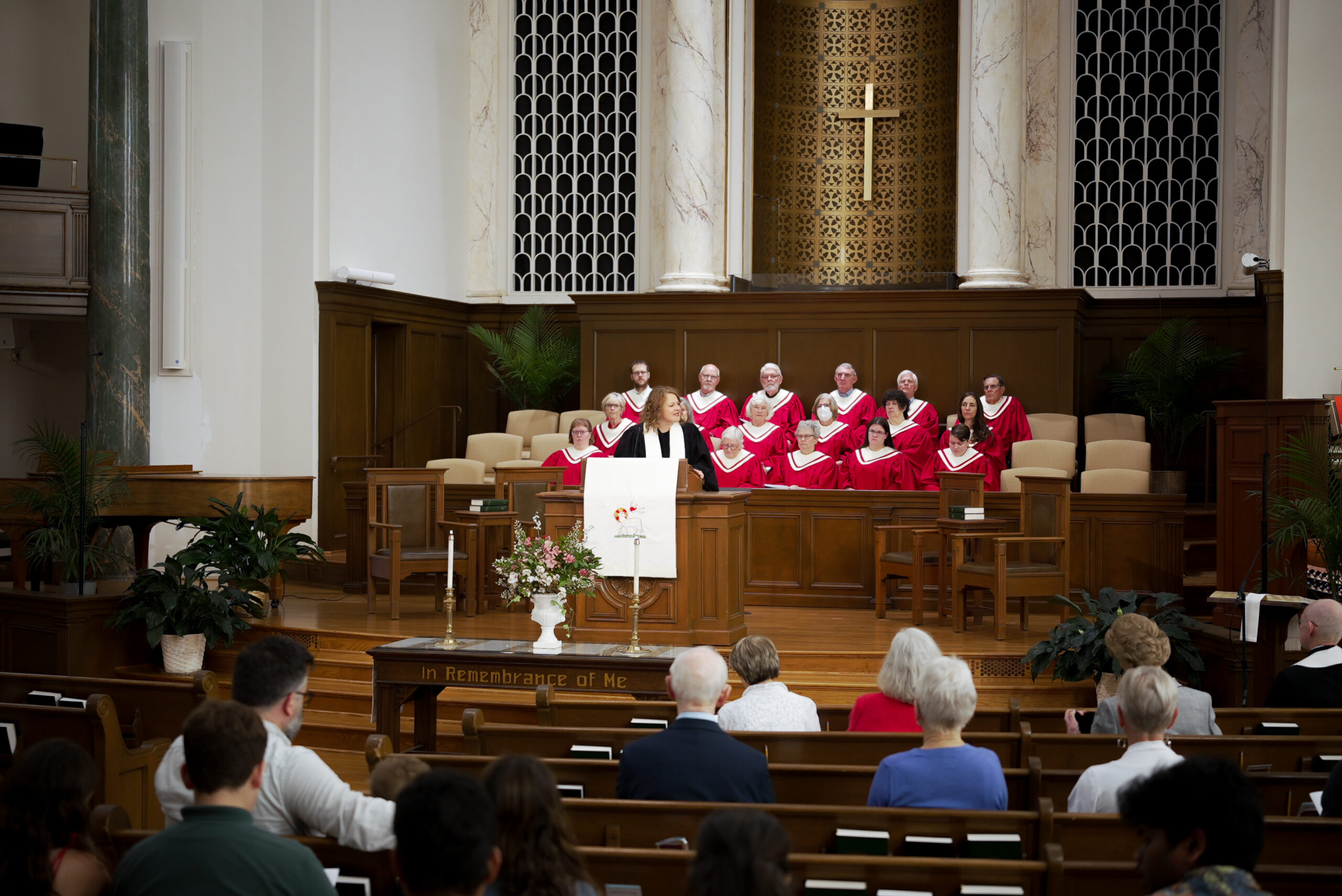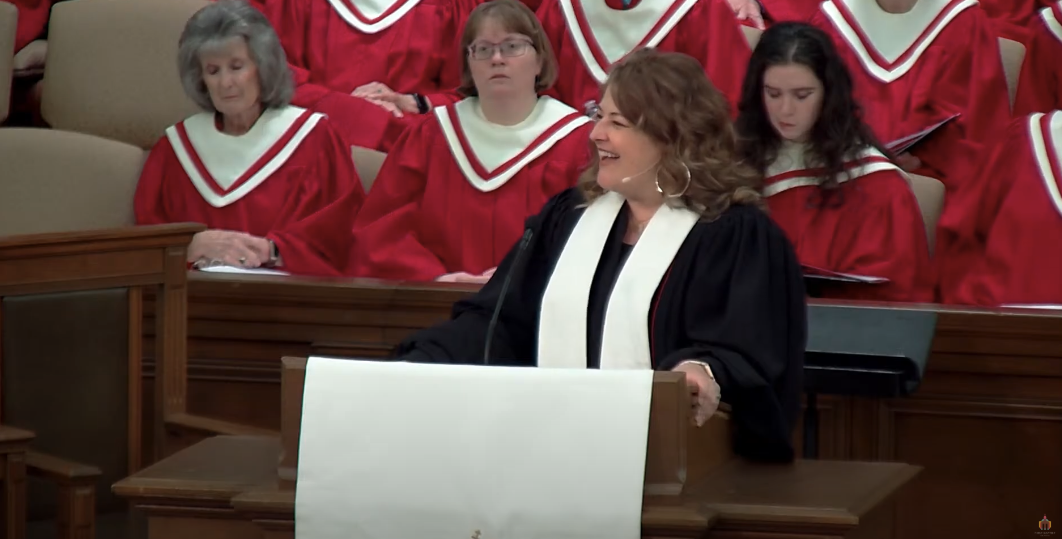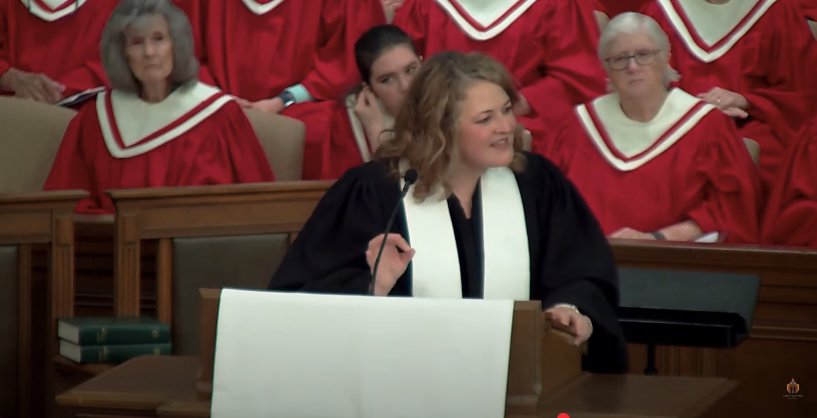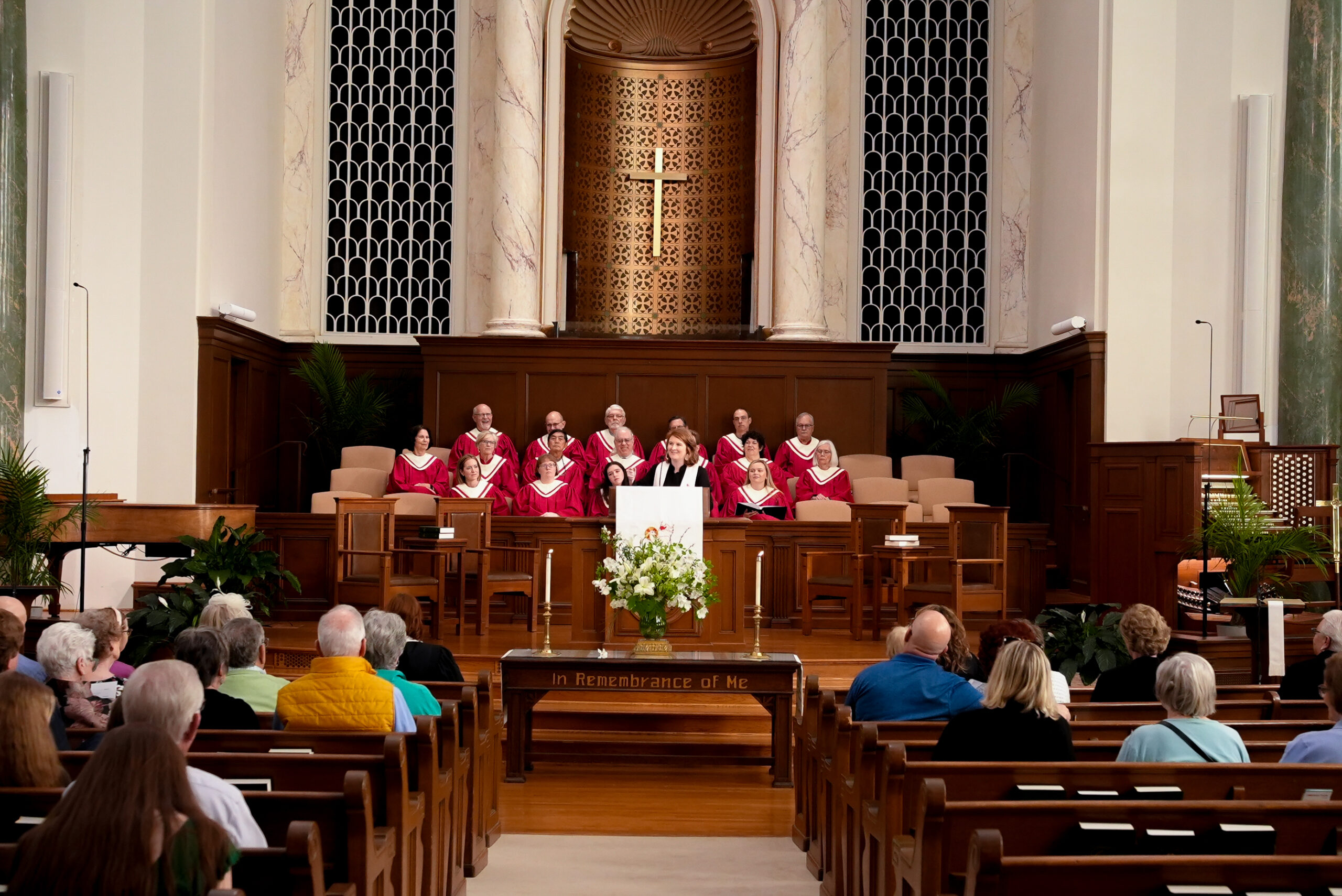I.About two years ago this month – May 1, 2023 – a small plane carrying seven passengers crashed deep in the Amazon rainforest, in a place among the most remote places in all the world. The plane had been flying between two villages in southern Colombia when its single engine failed, and they vanished into the canopy of the jungle. All seven passengers onboard were presumed dead.
It took awhile, but about two weeks later, the crash site was located. Three passengers had died in the crash, but as the rescuers noted, there were four passengers missing – all siblings, ranging in age from 13 years to 11 months. A search party began in earnest, but after weeks of looking, their hope began to wane. Rescuers dropped all sorts of assistance in the jungle – food to eat, water to drink, and whistles to alert the searchers of the children’s location – unsure if these tools would ever be reached by the children they couldn’t find. It wasn’t an accident that the rescuers couldn’t find the children, though, because as they’d later learn, the children were alive – but hiding. Afraid and unsure if those looking for them were friends or enemies, the children avoided the very people trying to save their lives.
Still not able to find the children, the government of Colombia intensified the effort with 150 soldiers, 40 volunteers, and rescue dogs scattered all throughout the jungle. And as they searched, clues began to emerge — tiny footprints here, a baby bottle there, used diapers tucked behind a pile of leaves. This family was raised near the jungle, you see, and the older children knew how to survive. But even so, they were just kids, now kids who had survived an unthinkable trauma.
Then came a breakthrough. The rescuers recorded the children’s grandmother calling to them with a word of comfort and direction: “Stay in one place,” she said. “Help is on the way.” The rescuers broadcast her voice through speakers that they’d lowered into the trees, and it was her familiar voice calling them home.
Not long after, on day forty, the children were found—starved, covered in bug bites, exhausted, but alive. You see, what finally drew them out to be found wasn’t the army. It wasn’t the food, or the dogs, or the water. It was the voice they trusted.1
II.I have to say, if it were my grandmother calling out to me and my brother in the jungle, I know we’d listen to whatever she said. With a smile in her voice, she’d call out “Em-ly” and the gentle nickname she used for my brother – “Andrewsie” – and we’d come running.
Think with me today about those trusted voices in your life: your grandmother, perhaps, but others who shape and comfort you. Perhaps a mentor whose words helped you feel seen and known. A partner or spouse whose voice sounds like home. Dear friends whose laughter is “the sound of the genuine” in your life.
Beyond the trusted voices, what about the voices who helped you find your own? Maybe a colleague or a supervisor who encouraged you to speak up with your ideas. Perhaps a stranger who commented about what your words meant to them in the midst of a challenging time. Or your parents who let you try and fail so that your voice would emerge clearer on the other side. For me, I often think of my high school drama teacher teaching our class about stage voice by standing with her back against the cinderblock wall of the Bearden High School auditorium, hollering, “send it all the way to the back.” (I learned a thing or two from her!)
The human voice is remarkable, isn’t it? From the first cry of our birth to the last sigh of our death, humans fill the air with voice. Timbre and tune, dynamics and percussion, speaking, singing, wailing, laughing, whispering, calling – all of it conveying the uniqueness of every human life, connecting one life to another, making meaning of the world, giving shape to all that’s known and unknown.
Now I’ll tell you, if you ever want to learn more than you ever wanted to know about the human voice, just find yourself a circle of singers. They are among the people most attuned to the fine intricacies of the human voice. Singers study them and obsess over them and strengthen them and inhabit them, these instruments that are made from within, our own bodies their resonators. As students of vocal performance, we learn how radically different a sound is if it rings behind the cheekbones or back in the throat or down in the chest, if the vowel is open or closed, if the breath is steady or escaping. And I must say, among the most exhilarating moments of my life were the voice lessons when my teacher made the most minor of adjustments to my vocal production, and all of a sudden, a dazzling sound emerged that I didn’t even know I had in me. A voice heard or a voice found, the human voice is, in many ways, the extension of the human soul, its vessel of truth and beauty.
III.And with this, we hear again the voice of God revealed through Jesus in the words of scripture in the Gospel of John. As John tells it, Jesus is in Jerusalem, walking through the portico of Solomon at the Temple for the Festival of the Dedication (or what our Jewish neighbors now celebrate as Hanukkah), marking the cleansing and restoration of the Temple nearly 200 years prior. It’s not an accident that this prestigious location during a significant festival became the place where the religious leaders pressed Jesus yet again about his identity. “Quit keeping us in suspense,” they say to him. “If you’re the Messiah, just tell us straight out! Tell us, so we will know once and for all.” So human, these leaders. They just want to know! So Jesus, quit speaking in metaphors and stories, stop with the allegories and examples, and just tell us. Yes or no. Black or white. This category or that one. Simple.3
Yet with Jesus, it’s never this or that, black or white, one human-sized category or another. He eludes them, not for mystery’s sake, but because God-with-us cannot be contained within the boxes of our making. He transcends them, transforms them with his living, not just his speaking. “I’ve told you,” he responds, “and you do not believe.” He’s told them – not merely with words, but with actions, with signs and wonders, healings and miracles, liberation for captives and restoration for outsiders. Like the good shepherd with his sheep, Jesus’s very life is Word and words made flesh, speaking bold love and boundless compassion in his living.
Listen to it in the words of Jesus. “You do not believe,” Jesus says, “because you do not belong to my sheep. My sheep hear my voice. I know them, and they follow me. I give them eternal life, and they’ll never perish. No one will snatch them out of my hand.” Or in other words, you critics don’t recognize my voice, and all the love and care and tenderness and liberation wrapped into it. Nothing I say, no argument I make, no case I build will convince them otherwise. But my sheep, they know my voice. It’s instinctive. They trust it when they hear it. They know it when they hear it. And because they’re so attuned to the sound of my love, they follow it and are safe with me. No one snatches them away. And all I’ve just said about my voice is the same for my Father’s. Ours is one.4
IV.What a gentle promise of Jesus! Like sheep with our good shepherd, like grandchildren following the call of their grandmother, we hear his voice, and it sounds like coming home.
But you and I know that the metaphor, however beautiful, has a bit of a gap. We’re humans, not sheep. We struggle and doubt and question and want to go our own way. We’re constantly lured by the noisy voices of this world – screeching on our screens, broadcasting on podcasts and radios and cable news, calling from the highest halls of power to the deepest corners of shadows – all trying to speak a world into being that they think we’ll hear and believe.
All you need is power!, they say, these noisy voices. Get it however you need: more money, more guns, more security systems, more rights. Buy it and sell it and hoard it and lord it over those below you on the ladder. Step on whoever you need to secure it. You can’t trust anyone who says otherwise.
Those noisy voices even wrap their words in Jesus-y language. God wants you to be healthy and wealthy and wise. God wants for those people to stay out. God wants for the order of this world to be the order of our God. God wants it!
The voices are alluring. They seduce us to believe them and are ready to snatch us up.
Yet “my sheep know my voice,” Jesus says. They know my voice, because they know me. And how will they know? They know my voice rings of love beyond boundaries, of compassion for all people, of liberation from systems of injustice, of preference for the poor, the weak, the meek, the unloved. This voice champions the underserved and calls out the overconfident. It rings of mercy and grace, of hope, and peace, and joy, and love in every tone, every note, every whisper, every sigh. My sheep know this voice, Jesus says.
So friends, when the kings of this world try and speak their kingdoms into being, would you remember the voice of Jesus?
When you hear the call to love those closest to you first, would you remember the voice that says, “love your enemies, and pray for those that persecute you?”
When you hear the call to condemn those who are different from you and erect walls of separation to divide and protect, would you remember the voice that says, “come to me, all who are weary and heavy burdened, and I will give you – all of you – rest”?
When you hear the call to hold tightly to all that we have and grab liberally all we want, would you remember the voice that says, “truly I tell you, just as you did it to one of the least of these, you did it to me”?
When you hear the call to get angry and anxious and afraid, would you remember the voice that says, “you are the salt of the earth. You are the light of the world.”
Friends, it is the voice of Jesus, the Good Shepherd, leading us beside the still waters and restoring our soul.
V.Hearing the voice is one thing, but allowing his voice to strengthen your own takes this call one step further. It seems only appropriate, on this Sunday we recognize our graduates, to talk about the power of the voice and its counterpart, vocation. The word “vocation” comes from the Latin vox, which means “voice.” It’s not just to the graduates that I speak of vocation, but to all of us. In the book we just gave to our graduates, Let Your Life Speak, Parker Palmer says of vocation, “vocation does not mean a goal that I pursue. It means a calling that I hear. Before I can tell my life what I want to do with it, I must listen to my life telling me who I am. I must listen for the truths and values at the heart of my own identity, not the standards by which I must live – but the standards by which I cannot help but live if I am living my own life.”5
“My sheep hear my voice,”Jesus says. And I can only imagine that if our lives are so deeply attuned to the voice of Jesus, our own lives begins to match his pitch.
How will I know?, you wonder.
Sometimes we need to practice speaking something true on a regular basis.6 Anna Carter Florence would have us read aloud the Bible, not just quietly in our minds and hearts, but right out loud where other people can hear it. Practice speaking out loud the words of Jesus, so that these words aren’t just written on your heart, but waiting ready on your lips. Word made flesh, words spoken into being.
And sometimes when we have trouble listening, when we struggle to find our voice, when the world just feels too noisy and cacophonous for truth or beauty to be heard, we simply need to remember. The voice contains memory. Remember the God who called you. Remember the Mother Hen who gathers you up in her arms and the Good Shepherd who yanks you away from trouble and finds you when you’re lost. Remember the Tree of Life in whose shade you find rest. Remember the Father who looks upon your one wild and precious life as so very, very good. Remember Jesus – gardener and carpenter, storyteller and healer, liberator and lover, friend and fierce advocate – the light who enlightens us all, the One who saves us again and again, full of grace and truth. Remember the Holy Spirit – whose breath feels sometimes like a rushing wind and others like a gentle breeze. Remember the holy mysteries of the faith: the dream of God that is here and not yet, that the last are first and first are last, that the deepest gladness comes not with having and hoarding but with giving it all away. We remember in the voice and voices that spoke profound liberation of the good news in our lives, unhooking us from old ways of scarcity and hustle and isolation and anger, and binding us to the One who gives you life in abundance.
And no matter if you’re finding your way into the world for the very first time or the 100th, you’ll remember in all your very human senses the moments in your life when God was intensely present in the face and voice of the divine: the aroma of the campfire and the expanse of the inky, starry sky, the beeping of the hospital machines and the ache of that first night alone, the second your newborn child was first placed in your arms and the way your face hurts from laughing so hard for so long with soul friends, the taste of bread and wine on your lips and the waters of baptism drying on your skin, all of this. All of this that we remember is held in the voice.
“My sheep know my voice.”
“No more a stranger or a guest, but like a child at home.”
Amen


